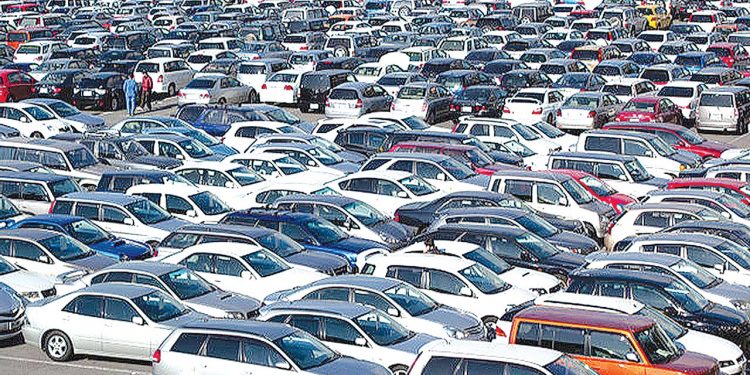The recent fall in the Naira against the United States dollar has led to increased Customs duties and related taxes at Nigeria’s seaports, significantly impacting the importation of fairly used vehicles, commonly referred to as Tokunbo. As a result, many importers have expressed their inability to bring in vehicles, forcing some to resort to recycling old cars already in Nigeria.
Adedoyin, President of the Association of Motor Dealers of Nigeria (AMDON), highlighted that these economic pressures have pushed numerous importers out of business. He warned of dire consequences for the public, stating, “The further consequences on the populace might lead to serious safety issues because most of what is happening now is recycling of old cars used in Nigeria.”
According to Adedoyin, the combination of high foreign exchange rates and soaring import duties has made it increasingly difficult for importers to operate. “Importers can no longer bring in fairly used cars due to the high foreign exchange rate. We have made it clear to the government that these hikes have adverse effects on our members, driving some away from the business. Even when you buy a car and sell it at a profit, you cannot buy another one at the current import prices.”
He urged the government to take immediate action to alleviate these economic burdens, warning, “Should the government fail to address this, the increases in exchange rates, transportation costs, and public safety will be threatened.”
Adedoyin explained that the economy relies on the movement of goods and services, emphasizing that anything impacting transportation ultimately affects the country’s economy. “Increasing the FX rate has put pressure on import duty, making it astronomical. We have told the government to act, or the effects will be catastrophic.”
With the sharp decline in vehicle imports, many importers are now recycling old and used vehicles, a trend Adedoyin cautioned could lead to an increase in accidents and vehicle breakdowns. “Recycling old vehicles will result in more frequent accidents and safety issues on our roads,” he warned.
The impact of these changes extends beyond the automotive industry. The current economic landscape has broader implications for the livelihoods of many Nigerians who rely on the importation and sale of vehicles for their income. According to Adedoyin, the ramifications of the current policies could disrupt not only the car market but also transportation networks across the country.
“Transportation is the backbone of any economy. When it suffers, every other sector feels the impact. The government must recognize this link and address the challenges that importers face,” he stated. Adedoyin’s call to action is echoed by many in the industry who believe that urgent intervention is necessary to stabilize the market and ensure road safety.
Rising taxes, fluctuating fuel prices, and import tariffs have created an environment where many vehicle dealers struggle to survive. Adedoyin pointed out that while some might seek alternative sources for vehicles, the long-term implications of relying on recycled cars could be detrimental to consumer safety and public trust.
The federal government’s fuel subsidy policies have also been scrutinized for their role in exacerbating the situation. As the price of Premium Motor Spirit (PMS), also known as petrol, continues to rise, transportation costs increase, putting additional strain on businesses and consumers alike. “The government needs to re-evaluate its approach to fuel subsidies and consider the broader economic implications of its decisions,” Adedoyin noted.
As the vehicle import business slows down, importers and dealers call for collaborative discussions with government officials to find viable solutions. Stakeholders urge for transparency and a commitment to creating a more favorable business environment that prioritizes both the economy and the safety of citizens.
In conclusion, the fall of the Naira against the dollar has had far-reaching consequences for Nigeria’s vehicle import industry, leading to a shift toward recycling older cars. Without urgent government intervention, the impact on public safety, economic stability, and the livelihoods of many Nigerians could prove catastrophic. Adedoyin’s warning serves as a crucial reminder of the interconnectedness of economic policies and their tangible effects on everyday life in Nigeria.










